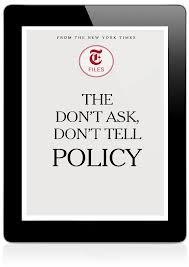Employment Issues
Sick Leave
 If you take time off from work due to illness, you may be entitled to sick pay.
If you take time off from work due to illness, you may be entitled to sick pay.
There are 2 types of sick pay:
- Company sick pay (also called contractual or occupational sick pay)- If your company has their own scheme you should be paid what you are due under that. This will be stated in your employment contract (which should be give to you within 2 months of starting work). Often companies will only allow you to have company sick pay if you have been at the company for a minimum period i.e 3 months
- Statutory Sick Pay- If you aren't entitled to anything under a company scheme, your employer should still pay you Statutory Sick Pay if you are eligible.
Blog
Top eBooks Under $5 on Discrimination in the Workplace
Kindles, iPads and other electronic reading devices have made it more convenient for you to access materials, both for leisurely purposes and for informational purposes. With eBooks, you can obtain information to not only help you succeed, but to also help with possible problems that may occur in the workplace. This list is composed of eBooks from Amazon.com to help you learn how to handle discrimination of any kind in the workplace. What is even better, is that these eBooks are all under five dollars, yet provide detailed information that is easy to follow.
*Note: Ratings are all out of five stars.
by Cathy Harris
Price: $3.58
Rating: N/A
by Cathy Harris
Price: $3.58
Rating: N/A
The Don't Ask, Don't Tell Policy
by The New York Times
Price: $2.05
Rating: N/A
Workplace Diversity: Does Not Mean Equal Opportunity, Equal Growth, and Equal Advancement
by Richard Brown
Price: $3.59
Rating: N/A
by Cathy Harris
Price: $3.50
Rating: 1
by Bikash Kalita
Price: $3.58
Rating: N/A
by Richard Campbell
Price: $3.57
Rating: 5
Baby Boomers Facing The World Age- Discrimination- Employment
by James Williams
Price: $4.11
Rating: N/A
Related Articles:
- What are eBooks?
- Top eBooks Under $5 on Resumes
- Top eBooks Under $5 on How to Find a Job
- Top eBooks Under $5 on Interviews
- Top eBooks Under $5 on Cover Letters
- Top eBooks Under $5 on Working Abroad
- Top eBooks Under $5 on Communication
- Top eBooks Under $5 on College Preparation
- Top eBooks Under $5 on Networking
- Top eBooks Under $5 on Reference Letters
- Top eBooks Under $5 on How to get a Promotion
- Top eBooks Under $5 on Volunteering
- Discrimination
- Gender Discrimination
- Age Discrimination
- Racial Discrimination
- Disability Discrimination
Employment Issues
Employment Security Commission
What is Employment Security Commission?
It is a federal and state program for the unemployed to still receive money while they are out of work and searching for more employment. It is designed to help support families and households while the unemployed candidate is searching for another job. This program does have its limits and is not meant to pay the candidate the same amount that he or she made previously, or to enable the same standard of living before the candidate lost his or her job.
What does it offer?
The basic function of the program is that it pays the unemployed while they are searching for other employment options. However it also offers other services and benefits to help enhance the knowledge of the candidates. The program wants to help and encourage employment, not support the unemployed. Other benefits include: career information, resume help, training programs and job fairs.
How does it work?
The government began collecting a payroll tax on employers under the 1935 act. States were then also encouraged to set up programs following similar and broad guidelines. Currently, all states have some form of this program. Although each state has its own form of the program, they still follow the federal rules and guidelines. Most are standard with little differences such as the name of the program may vary from state to state as well as the specific benefits that are offered.
Who can apply to recieve the benefits?
Generally, anyone who lost their job can apply. However there are conditions that must be met before the unemployed candidate receives the insurance. The candidate must be out of work for reasons other than their own. For example, he or she must have been fired or if he or she quit, the reasoning must prove that there was legitimate cause such as safety issues. Also, in order to file for unemployment, the candidate needed to have worked for his or her previous employer long enough to prove that the employer paid a sufficient amount of money for the candidate into the system. The standard time period that the a state looks into the work history is about 15 months.
How long can you use it?
The general amount of time to receive unemployment benefits is about 26 weeks. However, there is the ability to apply for an extension that goes up to about 99 weeks. The amount of time depends on the qualification of the candidate.
For more information:
or
- Visit the program that your own state offers.
Oregon
Rhode Island
South Dakota
Employment Issues
Disability discrimination
Disability discrimination is when an employer that is covered by the Americans with Disabilities Act or Rehabilitation Act treats a qualified candidate who has a disability differently or unfavorably due to that disability. The disability could be current or the candidate may have a history of a disability such as cancer or another disease that prohibited working in the past, but the candidate is now in remission or able to continue working. Disability discrimination also applies to those who have mental impairments as well as physical.
The law covers disability discrimination in the workplace, harassment because of disabilities and reasonable accommodation for disabilities.
The United States Employment Opportunity Commission provides detailed information about each of those categories as well as links to further information about disability discrimination. Other sources include include information on your rights as a person with disabilities, where to go if you are being discriminated against as well as other accommodations and employment options.
-
Blog12 years ago
Sorority Recruitment
-
Resume and CV13 years ago
Letters of recommendation / references
-
Resume and CV13 years ago
Resume or Curriculum Vitae (CV) ?
-

 Resume and CV13 years ago
Resume and CV13 years agoWhich Resume Format Should I Choose?
-
Resume and CV13 years ago
Basic rules for writing your resume
-

 Cover Letter13 years ago
Cover Letter13 years agoThe cover / motivation letter
-
Cover Letter13 years ago
Europass CV
-
Sample Resumes, Examples and Templates13 years ago
Reference Example

